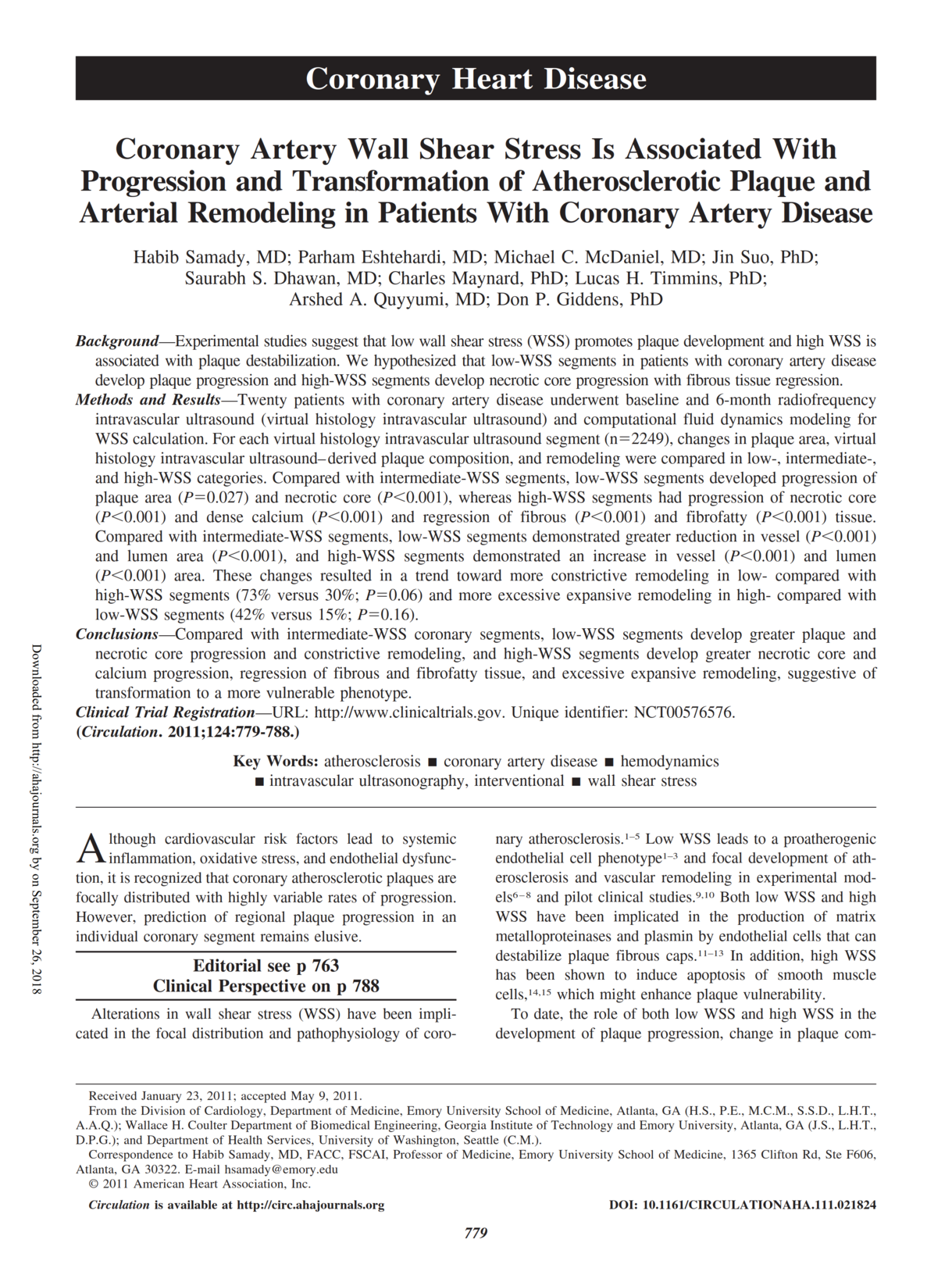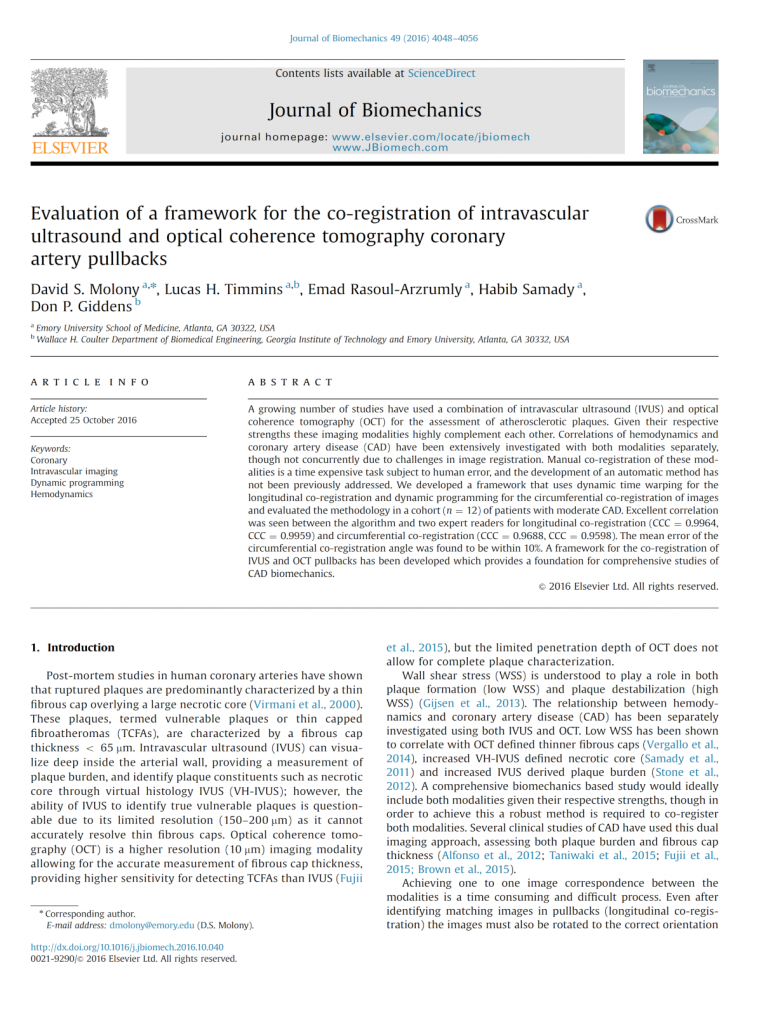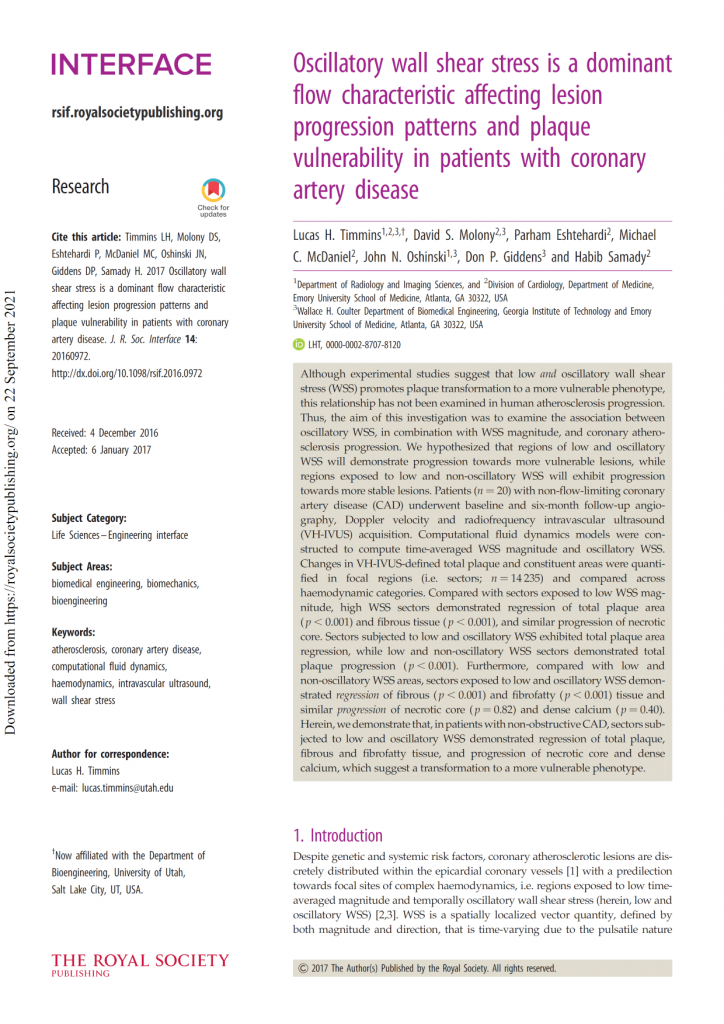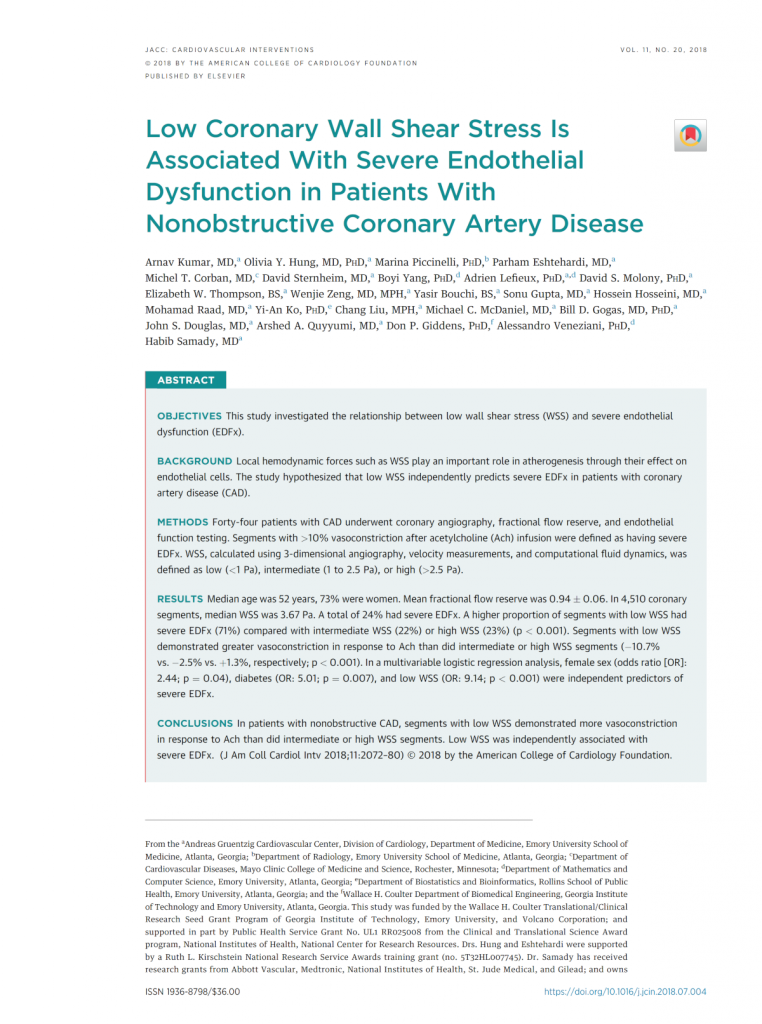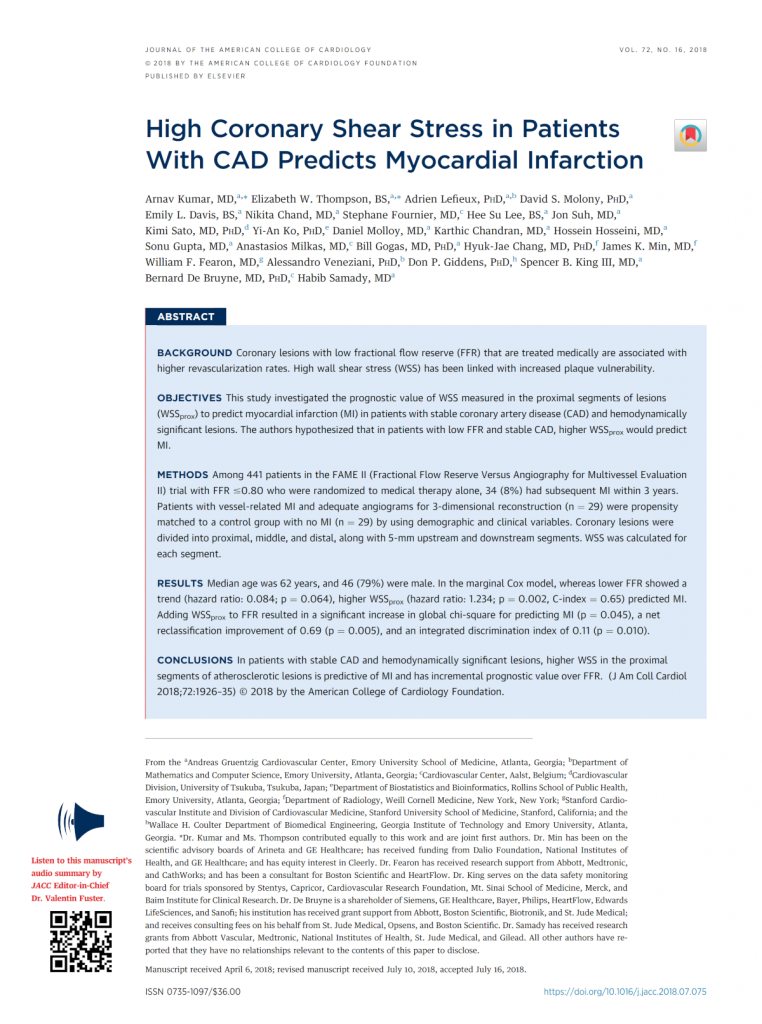The Georgia Center for Cardiovascular Biomechanics & Modeling (GCCBM) is a multi-disciplinary research center focused on enhancing the understanding and treatment of cardiovascular disease. The research center brings together engineers and clinicians in a unique collaborative environment. At GCCBM we are focused on translating research to clinical use. We aim not only to understand how and why cardiovascular disease happens but also in developing innovations to improve cardiovascular disease diagnosis and treatment. Located within the Georgia Heart Institute in Gainesville, GA, the Center focuses on 3 areas of cardiovascular research: machine learning, device biomechanics and biomechanics of atherosclerosis.
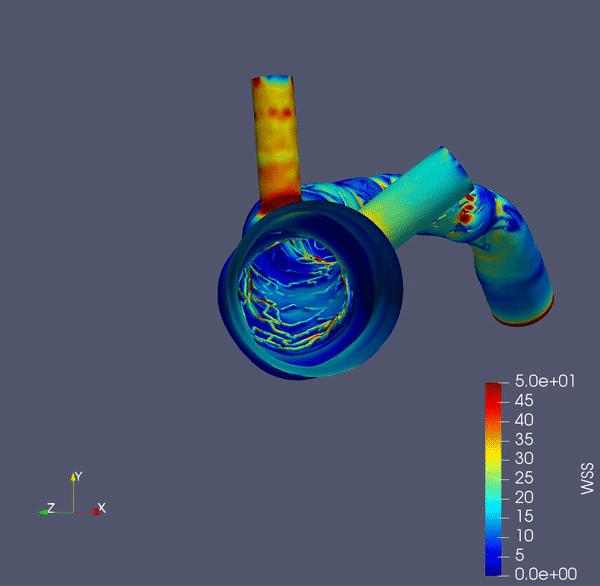
Research
Overview of NIH funding and collaboration across specialties, institutions and countries to find answers to the biggest questions about heart health, pathophysiology and life-saving technology.
Biomechanics of Atherosclerosis
When a stent is implanted new tissue grows around the implanted stent. In some cases, this can be excessive resulting in restenosis. At GCCBM we have developed novel algorithms for the reconstruction of stents from OCT images. Using these images we are using computational fluid dynamics to examine the association between wall shear stress and neo-intima/neo-atherosclerosis growth.
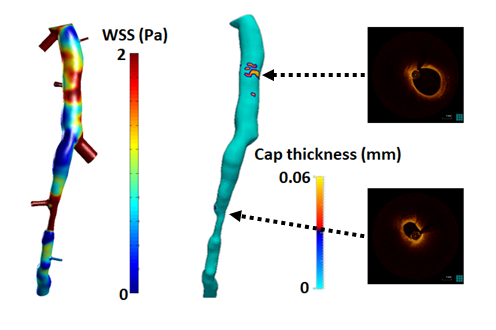
Machine Learning
Manual analysis of medical images is challenging due to the large number of images and the need for expert interpretation. At GCCBM we have developed the DeepIVUS platform for automatic segmentation of IVUS images. DeepIVUS is capable of measuring lumen area, plaque area, and plaque burden in 20, 40 and 45 MHz IVUS images.
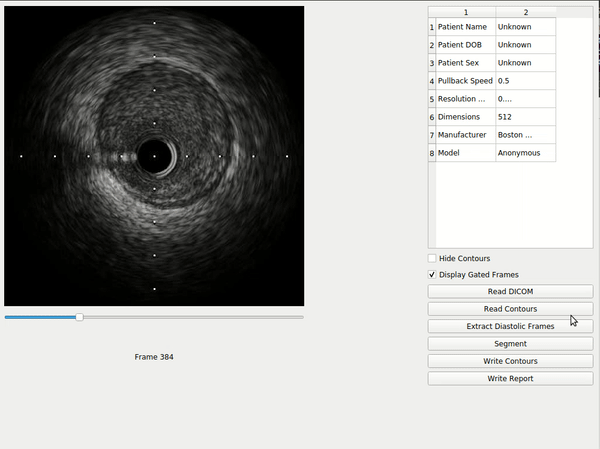
Device Biomechanics
Wall shear stress is a mechanical force associated with changes in plaque morphology. At GCCBM we are analyzing the relationship between coronary artery plaque and wall shear stress using several different imaging modalities. Using OCT we are analyzing the association between high wall shear stress and fibrous cap thickness. Using CCTA we are investigating the incremental benefit of wall shear stress as a predictor of major adverse cardiac events.
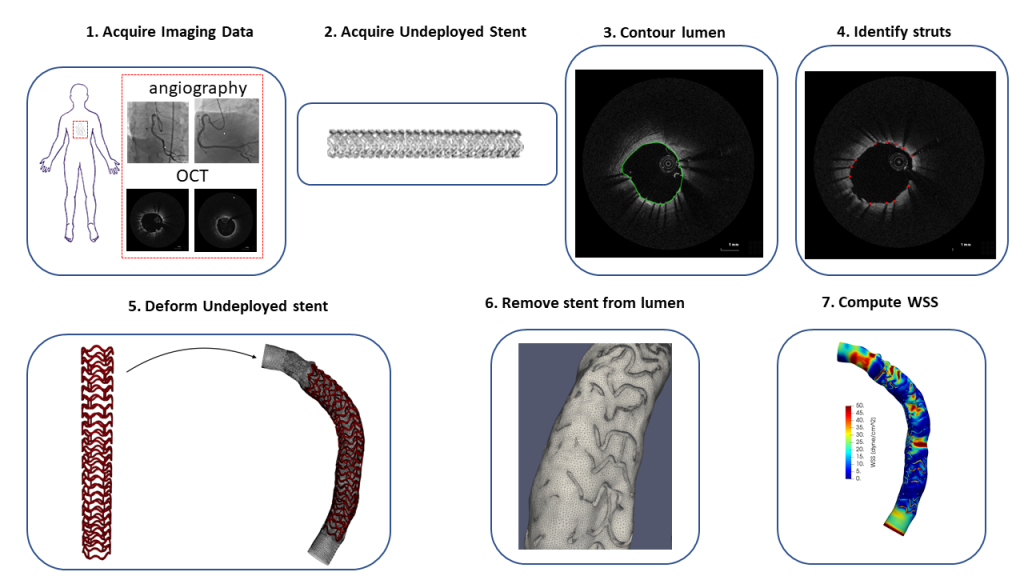
Project code that has been open-sourced by the lab can be found at https://github.com/ecbc-lab
Publications
Our Team
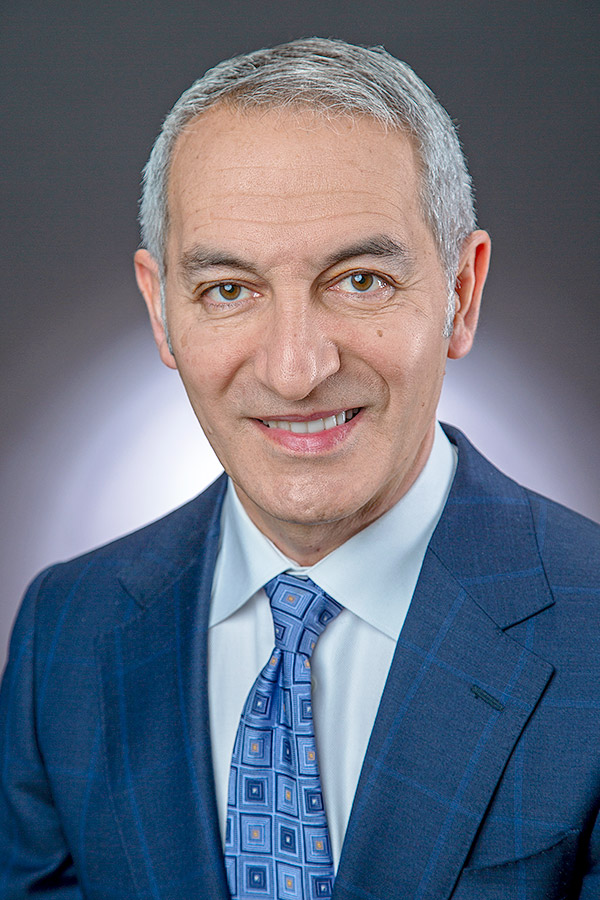
Dr. Samady is the director of the Georgia Heart Institute as well as a practicing Interventional cardiologist. Prior to joining the Georgia Heart Institute, he was the director of interventional cardiology at Emory University Hospital. He has broad research interests including both large clinical trials as well as small biomechanical mechanistic studies.
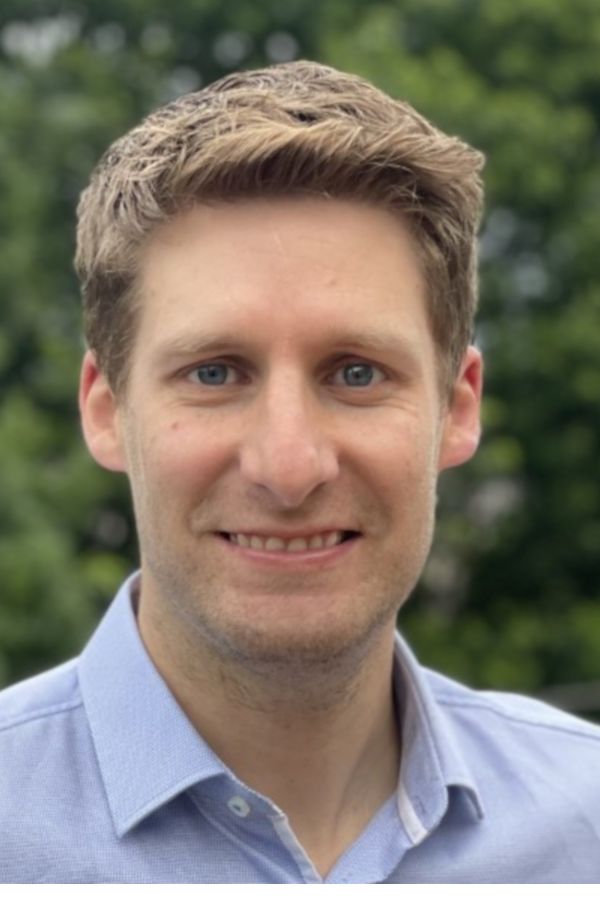
David has a Ph.D. in Engineering from the University of Limerick, Ireland. He did a postdoctoral fellow with Don Giddens at Georgia Tech before joining the lab at Emory University as a research scientist. His main research interests are the use of machine learning for automated image analysis and prediction of patient outcomes.

Adrien holds an MSc in mechanical engineering from the University of Compiègne, France, and a Ph.D. in computational mechanics with Ferdinando Auricchio from the University School for Advanced Studies of Pavia – IUSS, Italy. He then worked as a postdoctoral fellow with Alessandro Veneziani at Emory University. His main research interests are in device biomechanics computational modeling and has served as the primary technical expert for patient-specific stent reconstruction.
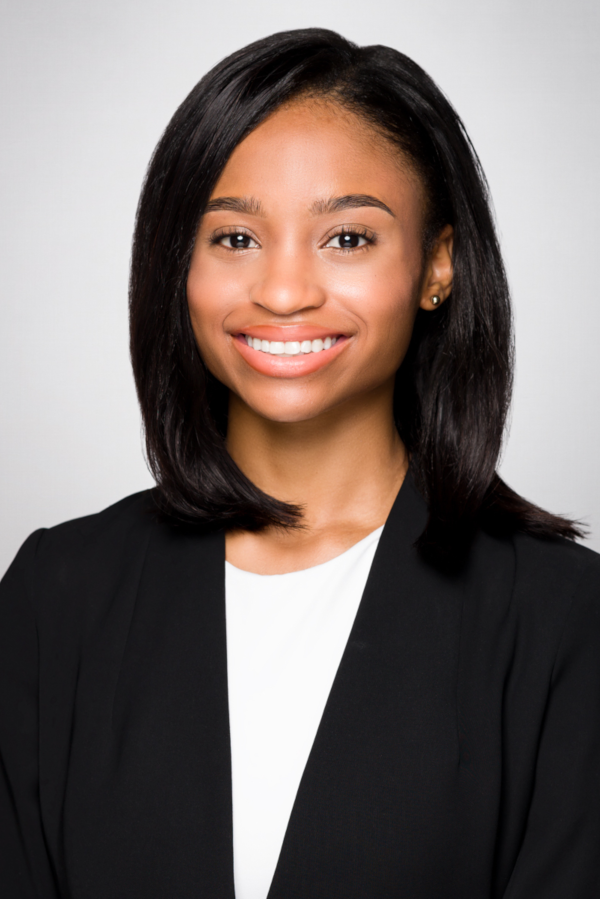
Kaylyn majored in Biomedical Engineering and graduated from Georgia Tech in 2018. She is involved in device biomechanics as well as atherosclerosis research. Kaylyn expects to begin medical school in 2022.
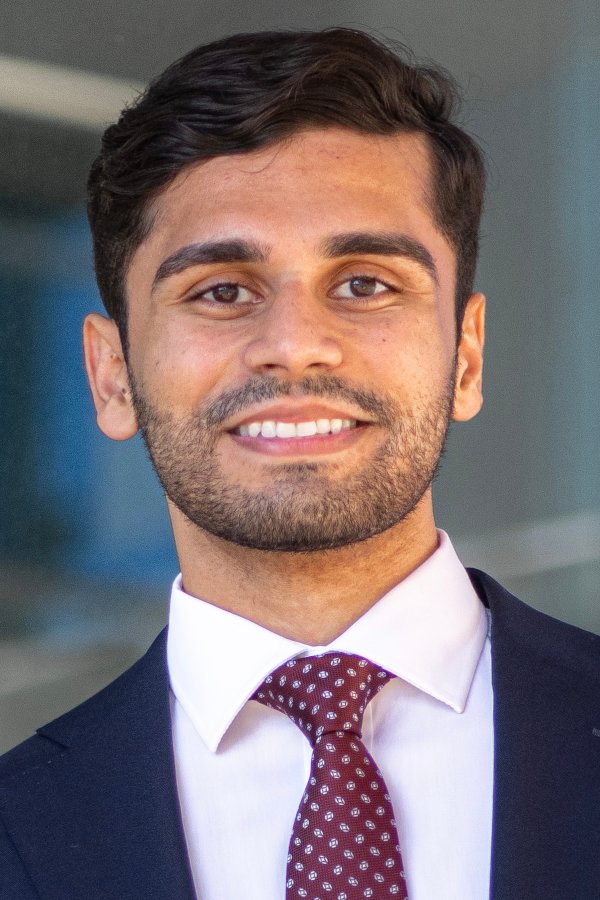
Sameer is a medical student at Emory University and originally began participating in research with the lab as an undergraduate. Sameer has worked on multiple research projects during his time with the lab.
Jessica has a medical degree from Ecuador and as well as coordinating the SHEAR-STENT study she is an experienced analyst of OCT images.
Ryan Dunn (2019-2021)
Student at University of Cincinnati
Luke Timmins (2010-2015)
Assistant Professor at University of Utah
Beth Thompson (2016-2018)
Medical student at University of Pennsylvania
Arnav Kumar (2017-2019)
Interventional Cardiology Fellow at Brigham and Women’s Hospital
Sonali Kumar (2019-2021)
Cardiology Fellow at Emory University
Parham Eshtehardi (2015-2017)
Cardiologist at Northside Hospital
Olivia Hung (2013-2015)
Clinical Assistant Professor at University of Arizona
Bill Gogas (2013-2018)
Interventional Cardiologist at Nanjing University
Joo Myung Lee
Assistant Professor at Samsung Medical Center
Jin-Sin Koh
Assistant Professor at Gyeongsang National University Hospital
Sung Ahn
Cardiologist at Yonsei University
Brian Yoo
John Suh
News
January 7, 2022
OCT Stent reconstruction paper published
Adrien Lefieux published a methodology for reconstructing coronary stents from OCT images.
December 21, 2021
Abstract accepted for ACC 2022
Our work combining OCT and CFD investigating stent hemodynamics titled “A COMPARISON OF POST-STENTING WALL SHEAR STESS BETWEEN XIENCE AND RESOLUTE: INTERIM ANALYSIS FROM THE SHEAR-STENT TRIAL” has been accepted as a poster for ACC’22.
December 17, 2021
Kaylyn Crawford presents her research at NGHS research day
At NGHS research day Kaylyn presented preliminary work on wall shear stress in stented arteries. Look forward to the entire dataset being presented at ACC’22!
September 22, 2021
Georgia Center for Cardiovascular Biomechanics & Modeling launches
The Georgia Center for Cardiovascular Biomechanics & Modeling (GCCBM) launches today with our mission to improve the understanding and treatment of cardiovascular disease through research and innovation.

